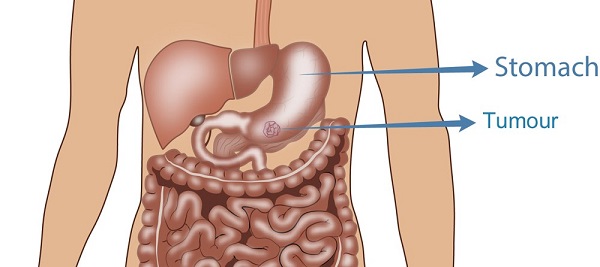Symptoms and risk factors of Renal Cell Carcinoma, Neuroendocrine Tumor, Meningioma and Gastrointestinal Stromal Tumor

Cancer is a genetic anomaly resulting in the unrestrained and abnormal growth of cell mass. This cell growth has the potential to spread to and invade the other parts of the body.
In this article, let us discuss the symptoms and risk factors of four different types of cancer.
Renal Cell Carcinoma
Renal Cell Carcinoma (RCC) is the most common type of kidney of cancer, originating in the kidney, in the proximal convoluted tubule lining.
Symptoms:
- Haematuria- blood in the urine
- Pain on the side of the body, generally between the ribs and the hips
- An increase in abdominal mass or bloating
- Malaise- a general feeling of unwellness
- Anemia
- Hypertension
- Hypercalcemia- elevated calcium level in blood
- Recurrent fevers and chronic fatigue
Risk Factors:
- Obesity
- High blood pressure
- Exposure to certain chemicals like lead, cadmium, petrochemicals, chlorinated solvents, Polycyclic Aromatic Hydrocarbon (PAH)
- Extended use of non-steroidal anti-inflammatory drugs (NSAIDs)
- Genetic disposition to the ailment
- Hyperparathyroidism-jaw tumor syndrome, sickle disease, Birt–Hogg–Dube syndrome, etc.
Neuroendocrine Tumor
Neuroendocrine tumors (NETs) are cancerous cell growths arising from the endocrine gland and nervous system cells. They originate in the intestine and are called carcinoid tumors and in the lungs, pancreas, and other parts of the body.
Although there are different types of NETs, their overall symptoms are similar.
Symptoms:
- Diarrhea
- Congestive Heart Failure (CHF)
- Flushing
- Abdominal cramp
- Bronchospasm- muscle tightening in the windpipe
- Tachycardia- abnormally rapid heart rate
- Breathing difficulties
- Weakness, nausea, and weight loss
- Neuralgia- severe irritation
Risk Factors:
- Excessive alcohol consumption
- Exposure to radiation like during chemotherapy and radiofrequency ablation
- Imbalanced diet and nutrient deficiency
Meningioma
Also known as a meningeal tumor, meningioma is a slow-growing cancerous cell growth forming from the meninges in the brain and spinal cord.
Symptoms:
- Seizures
- Incoherent speech
- Confusion
- Dementia
- Vision problems
- Loss of bladder control
Risk Factors:
- Exposure to ionizing radiation
- Genetic disposition
- Neurofibromatosis type 2
Gastrointestinal Stromal Tumor
As the name suggests, gastrointestinal stromal tumors (GISTs) are a type of cancer that originates in the gastrointestinal tract.
Symptoms:
- Swallowing troubles
- Metastases
- Gastrointestinal bleeding
- Abdominal pain
Risk Factors:
- Age
- Gender- females are more susceptible
- Genetic disposition
Although the above four are different types of cancer, there is a generic medication for treatment. Sunitinib can cure renal cell carcinoma, neuroendocrine tumor, meningioma and gastrointestinal stromal tumor. It works by interfering with a protein responsible for cell division and blocking the two processes that permit cancer cell growth.


 Anti Cancer Drugs
Anti Cancer Drugs Hepatitis C
Hepatitis C Meds for HIV
Meds for HIV Ayurvedic Medicine
Ayurvedic Medicine Transplant Medicine
Transplant Medicine Respiratory System
Respiratory System +91-9811604444/ 9811604424/ 9999064250
+91-9811604444/ 9811604424/ 9999064250  8(800)100-47-90
8(800)100-47-90











